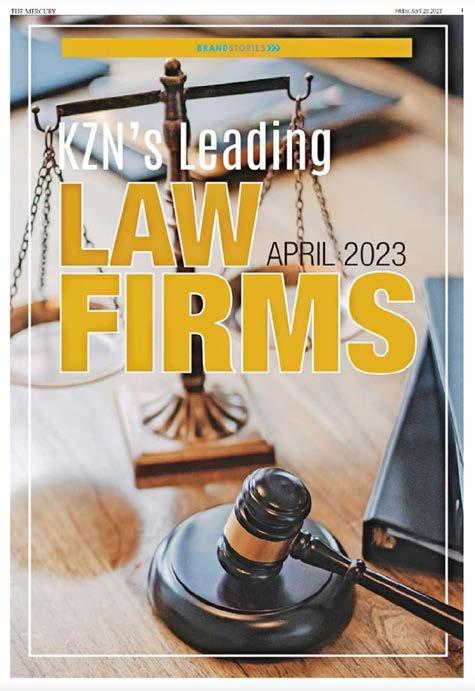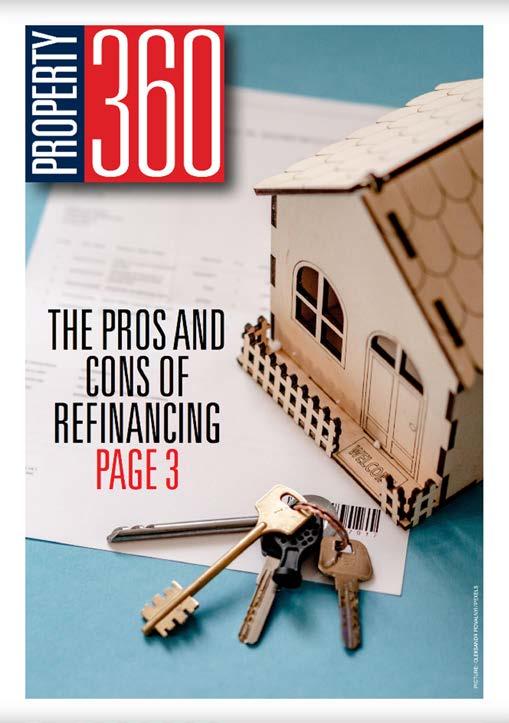WILL RAPID URBANISATION REDEFINE THE AFFORDABLE PROPERTY MARKET? PAGE 3


WILL RAPID URBANISATION REDEFINE THE AFFORDABLE PROPERTY MARKET? PAGE 3

Lew Geffen Sotheby’s International Realty CEO Yael Geffen says no matter the amount, yet another predicted higher repo rate this month would mean higher bond repayments and “a crushing debt load on already overburdened South Africans”.
“There is a limit to the amount of belttightening society can bear, and I believe we’re close to reaching it.
“Poverty levels are rising and skilled individuals are leaving in droves – a massive economic exodus of people who were heavily invested in the country’s property market. We simply can’t afford to lose any more,” she says.
“For those left, the forecast for the next 12 months is grim,” adds Geffen.
Describing a possible interest rate hike as “extremely unfortunate”, Richard Gray, the CEO of Harcourts SA agrees the consumer “really can’t handle too many more economic shocks. They are already struggling with high electricity prices, high inflation, large municipal rates increases and already high interest rates”.
“If the rates are hiked again, it will impact both homeowners and tenants negatively. Homeowners will struggle to make mortgage payments and we will see a higher number of defaults.
“Landlords will have to increase rental amounts to cover their additional financing costs, which will, in turn, place pressure on their tenants.
“Interest rate increases also have a negative impact on businesses who have to cope with higher financing costs and rentals, and they have no choice but to pass this on to the consumer. And so the cycle goes.
“I believe that the higher-than-ideal inflation rate is being caused by factors beyond the control of the consumer. Things such as the petrol price, electricity price and the weak exchange rate are causing inflation. Increasing interest rates is simply going to hurt the consumer and the property market,” says Gray.
RE/MAX Southern Africa CEO Adrian Goslett says the main purpose of the interest rate hikes is to bring inflation back within the Reserve Bank’s target range of between 3 and 5%.
“When you review the interest rate hikes alongside inflation statistics over time, you can see how each increase has had the desired effect of incrementally bringing inflation down,” he says.
Taking a more historical view on the stats, Goslett also points out that as soon as inflation hits the Monetary Policy Committee’s target range, interest rates begin to stabilise.
Three measures of inflation have provided positive news on the inflation front in recent days – the PMI purchasing price index, and producer and consumer inflation, says Pam Golding Property group CEO Andrew Golding.
“After surprising on the upside for two consecutive months (February and March), consumer inflation has now surprised with a better-than-expected reading for two consecutive months (April and May) and is currently marginally above the upper limit of the Reserve Bank’s inflation target at 6.3%.
“With global food and energy prices subsiding and the rand having regained some of its earlier losses – allowing for petrol price cuts last month (June) and this month (July) – coupled with a high base last year, the current easing trend in inflation is likely to continue during the remainder of the year.”
AVOLLEY of interest rate hikes in the past 18 months have left South African homeowners poorer, reeling and struggling to make ends meet under tough economic conditions.
And now, some experts predict that this month’s interest rate, to be announcement on July 20, will provide no reprieve for hard-hit homeowners. Some analysts are expecting an increase of 25 basis points.
The relentless hikes since the Covid lows saw the SA Reserve Bank begin to hike interest rates in November 2021. By March this year, interest rates had been hiked by 425 basis points, and another 50 basis points were added in May, says FNB’s John Loos.
Since November 2021, continual interest rate hikes have seen homeowners with R2 million bonds, for example, pay an extra R6 000 on top of the monthly mortgage repayments they were making.
Loos says FNB expects this to be the last 25 basis point interest rate hike before rates start to move sideways into 2024.
But, he says, “the end of rate hiking will likely come too late to prevent a
significantly slower level of new mortgages in 2023 compared with 2022”.
Dr Andrew Golding, the chief executive of the Pam Golding Property group, believes SARB could go either way next week.
“Analysts are currently fairly evenly split between those forecasting one final 25bps rate hike and those who believe that interest rates have reached a peak in the current cycle.
“It is an unusually close call and it will be best to monitor developments between now and the MPC (Monetary Policy Committee) meeting to see which way the bank is likely to move,” he says.
In the event the Reserve Bank does hike rates, this will probably to be the final hike of the current cycle, he believes.
A 25bps hike on its own does not increase bond repayments significantly: based on R1m bond going from 11.75% to 12% this would be an increase of R173 a month, R347 a month on a R2m bond.
However, Golding points out, “considering the fact that rates have risen from 7% to 11.75% or 12%, the impact is more pronounced”.
Adrian Goslett, the regional director and CEO of Re/Max of Southern Africa, agrees that debt holders should brace themselves before the next interest rate announcement.
He says the priority should be for homeowners to find ways to stay on top of their debt repayments.
“Until interest rates begin to stabilise and, hopefully, decrease over time, homeowners will need to work carefully with their budgets to ensure that there are no late or missed payments.

“If the past is anything to go by, we are hopefully nearing a time of stabilisation which should bring some respite to homeowners,” he says.
Goslett says those who cannot find the room in their budget for the next possible interest rate hike are advised to seek help from a professional financial adviser before the next interest rate announcement.
“Being prepared will make all the difference when it comes to building greater financial freedom. Never be afraid to speak to the professionals and reach out for help when you need it,” he says.
Golding says based on the factors alone, the Reserve Bank may be tempted to halt interest rate hikes, which has seen the prime rate rise from 10.25% in late 2019 (before Covid) to a low of 7% for more than a year, at the current level of 11.75%. This at a time of extremely weak economic growth.
However, he adds, the Reserve Bank will be cautious in the face of a stillhawkish Fed, which has signalled that it will probably hike rates later this year.
“The Reserve Bank will also undoubtedly be concerned about future bouts of rand weakness and any increase in the severity of load shedding, which would increase costs for businesses.
“It is thought likely that the Bank will look closely at inflation expectations (due this week) to see if the business sector, unions and analysts continue to anticipate higher prices – requiring further rate hikes to dampen price pressures.”
Analysts divided on the answer but one thing is for certain – consumers can’t afford more knocksPICTURE: DEVON JANSE VAN RENSBURG / UNSPLASH
experienced in the affordable market as the need for housing under R1 million is growing rapidly throughout the country.
BY DARREN FRANCISeconomy spinning. In the current situation, property experts and academics believe the property market in general will not beat inflation during this financial year.
We are seeing expectation and forecasting for property value growth set at between only 3 and 4%.
However, some of us believe this will vary between various property segments.
Western Cape, Cape Town in particular, and other coastal cities, in the hopes of finding better opportunities.
Cape Town’s unemployment accounted for only 26% versus the much higher national average.
The evidence is seen in the growth in urban areas and surrounds. The CAHF indicated that most households (83% in 2021) live in a formal dwelling in metropolitan areas and 15% in informal dwellings.
In 2021, nationally, 69.7% of households owned their home and 18.7% rented.
income bracket fall out of the help of Flisp.
The rental market will also continue to grow as professionals seek accommodation and semigration grows, increasing the demand for more rentals across the country and making the buyto-let market potentially thrive. Soaring interest rates and political instability will increase chances of the rental market expanding rapidly over the next few years.
THE affordable market, especially properties in the townships for below R700 000, is one of the most underestimated property markets in South Africa.

It is here where I predict we will see massive growth, with it having all the credentials –high demand, affordable and government assistance available –to outperform the more traditional markets.


Looking back over the past three years, South Africa has experienced devastation because of anti-Covid19 strategies, and it has left the South African
The property market in South Africa has seemingly proved to be resilient and has grown despite its many challenges, including the hard lockdowns of 2020 and 2021 that shut down the industry for business.

Rapid urbanisation is one of the things that will bump up the affordable market as people seek better opportunities and to contain their spend.
Urban population has, in fact, been growing, on average, by 2% a year for the past decade, and it is estimated that by 2030, 71% of South Africa’s population will be living in urban areas and cities, according to the Centre for Affordable Housing Finance in Africa (CAHF).
Provincially, we have seen a rise in semigration from other provinces to the likes of the
The uncertainties of prolonged and further interest rate hikes –another one of 25 basis points is expected later this month – growing inflation, the war between Ukraine and Russia, next year’s national general elections in South Africa and diplomatic tussles have left many in limbo and rightfully worried about the bleak future facing us today.
Despite the challenges, I believe growth in the national property market will continue.
Conventional wisdom in the property industry believes that every 20 years, there will be an upturn in the property market. But with growth being average over the past few years, we have not seen this upturn as before in the “known affluent market”. In the 1980s and 2000s, we saw significant growth in the property sector. But the country is still to face the next upturn cycle, which was supposed to be 2020 but Covid-19 stifled this.
The anticipated upturn in property could, however, be
The kasi (informal settlements) phenomenon of micro rental units and the ever-increasing backyarder growth has escalated and has become a vital informal strategy to the housing demand.
For years, the affordable market has been experiencing critical housing shortages, thus property has become big business in these areas.
The sector offers so much and will become profitable for many local investors. It has the potential to beat inflation.
But who is funding the informal sector? Why is there such a reliance on this particular sector?
We have seen the likes of DAG, THUF and other financing companies assisting people living in the townships helping to formalise housing. It has created many opportunities in this market.
The conventional market also puts many South Africans outside the government subsidy/FLISP programme.
Property values of R600 000 and more and/or people earning more than the R22 000-household
The affordable market will attract more formal investment and become a significant player in the property market.
From an investor point of view, to make money here you need street smarts. You need to understand how things work in the areas and need practical solutions to solve everyday problems in this market.
At its best, the market is known to offer as much as a 30 to 40% return on investment, while decreasing the capital outlay as opposed to the more affluent areas.
Case in point: property prices have grown exponentially in this market in the past decade.
The value of an average three-bedroom property purchased in Mitchells Plain in 2009 for R340 000, has today grown by more than 300%.
It is clear the upturn has already been experienced in the market. The market has changed over the years and there is lots of room for growth and opportunity in these areas.
Watch this market, and if you can, invest in it.
Demand for housing under R1 million is growing rapidly throughout the country

R 1 295 000
2 BEDROOMS | 2 BATHROOMS
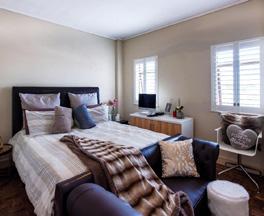
SPACIOUS APARTMENT IN DIEP RIVER.

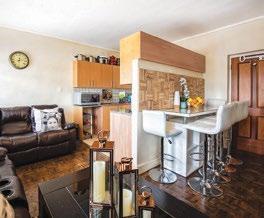
2 bedroom 2 bathroom apartment in Clarewood, Diep River, a short walk to the station, Martins Bakery and other local amenities, above the railway line.
• Fitted kitchen with electric oven, hob and extractor and plumbing for washing machine.
• Open-plan lounge with parquet flooring
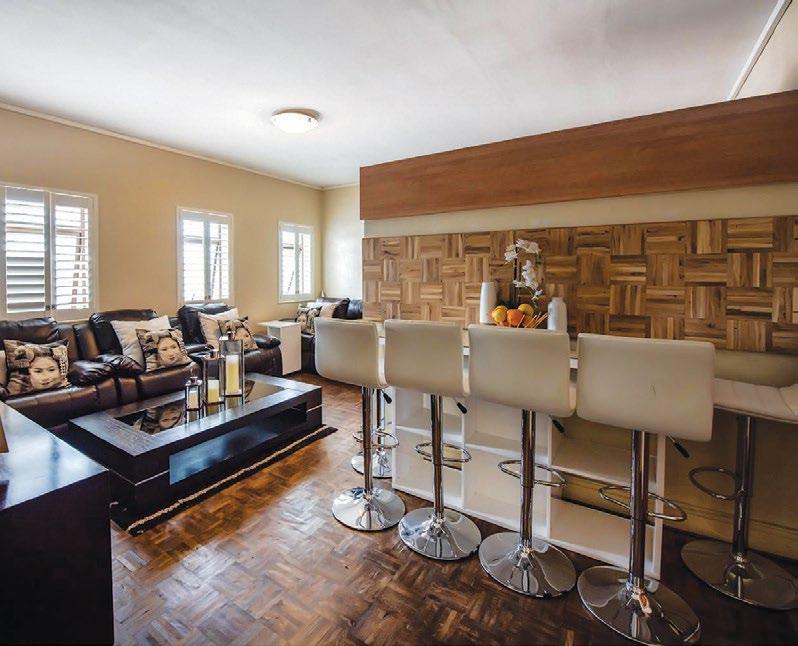
•Two double bedrooms with an en-suite bathroom complete with bath and shower. • Covered Parking bay. • Prepaid electricity
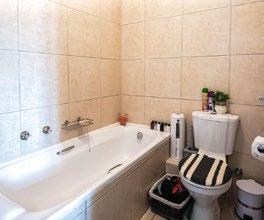
ERF: 1471m2 | HOME: 70m2 | RATES: R 450 p/m | LEVIES: R 1500 p/m
PLEASE CONTACT: Collin Mbiriri on 071 879 8564 or email cmbiriri@gmail.com or mmnyandoro@gmail.com
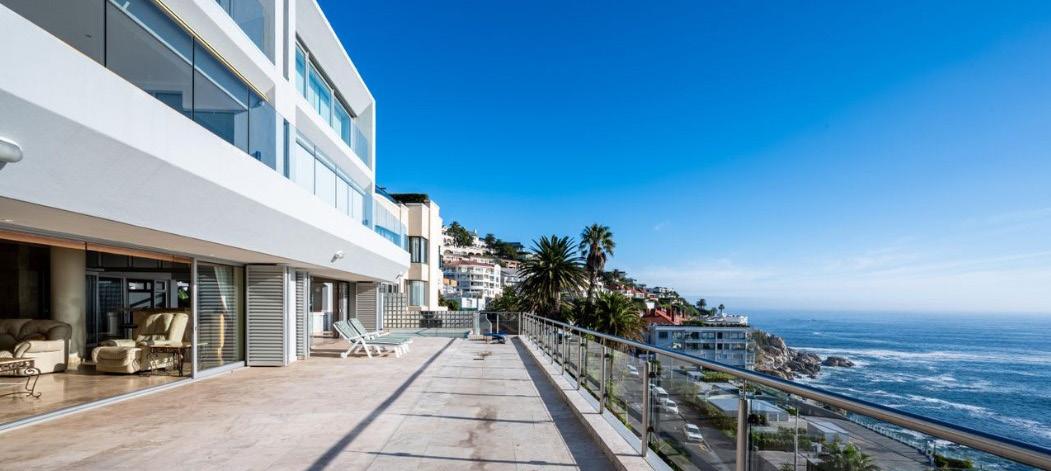
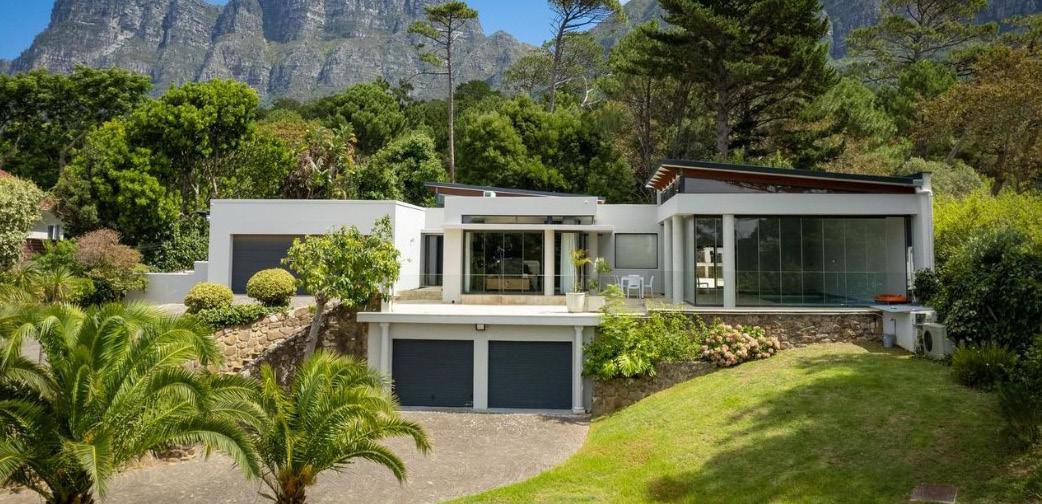

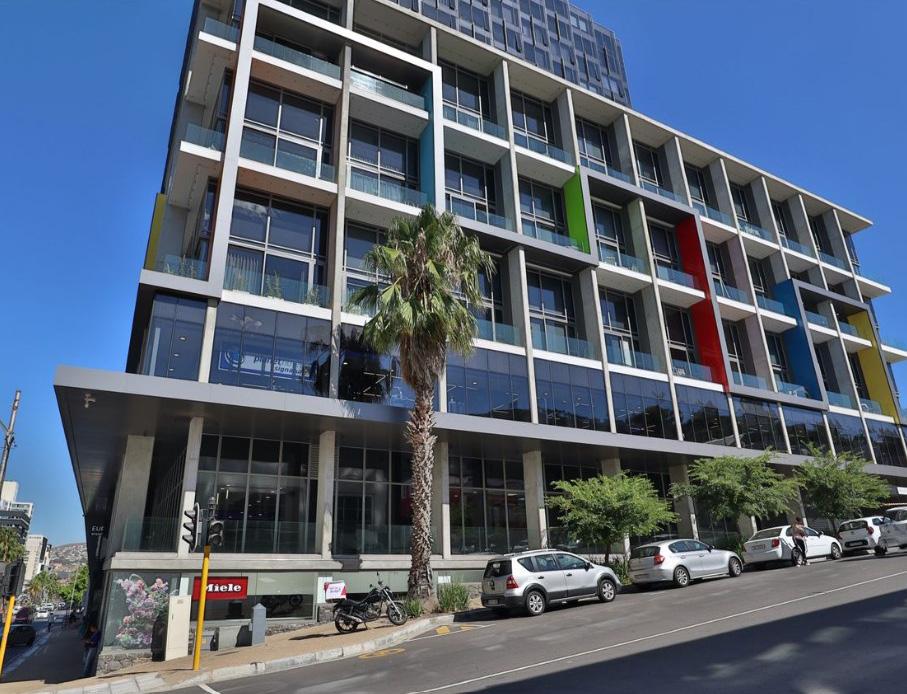
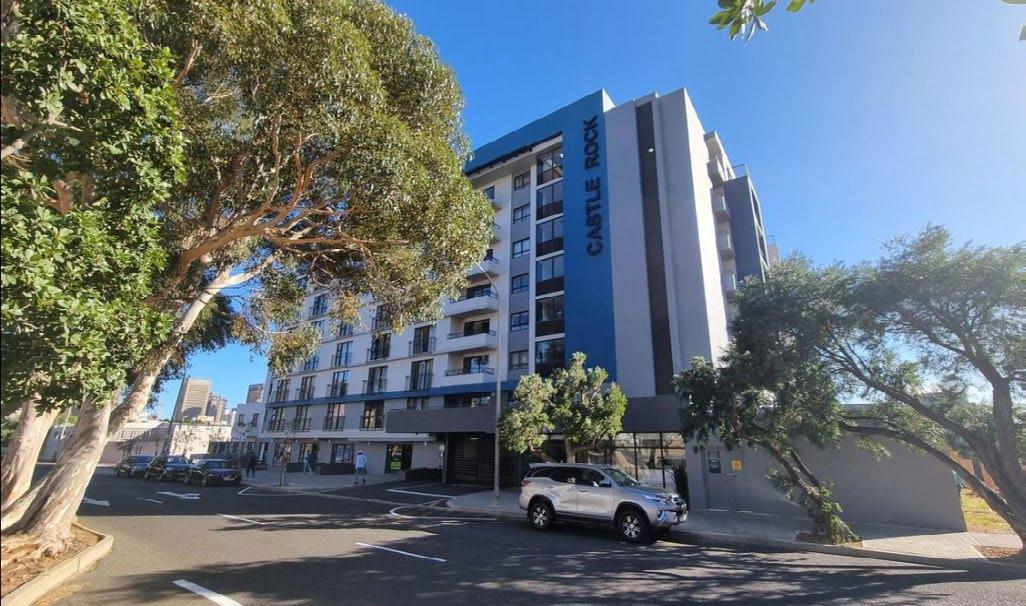
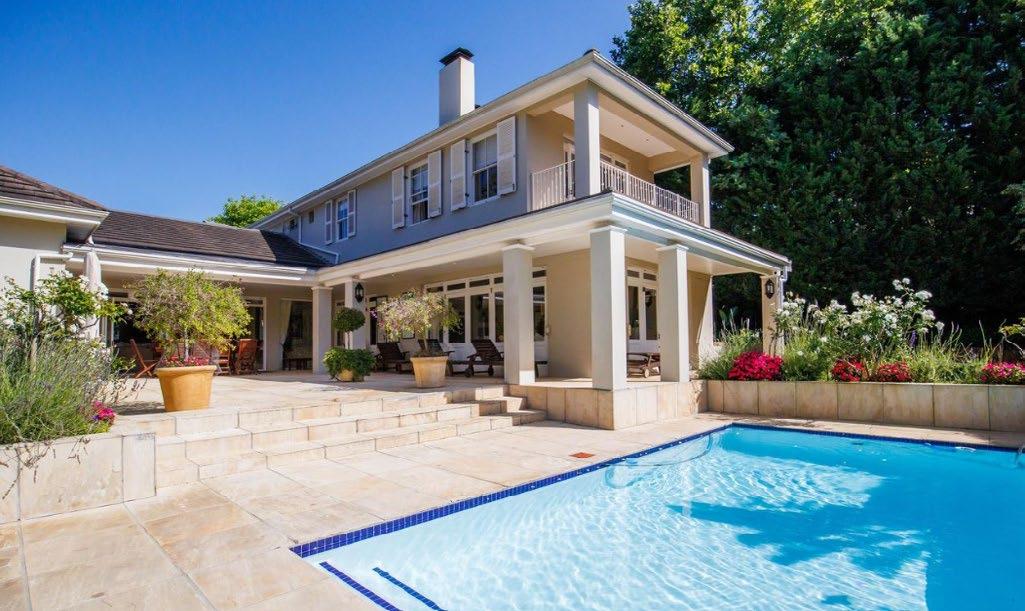
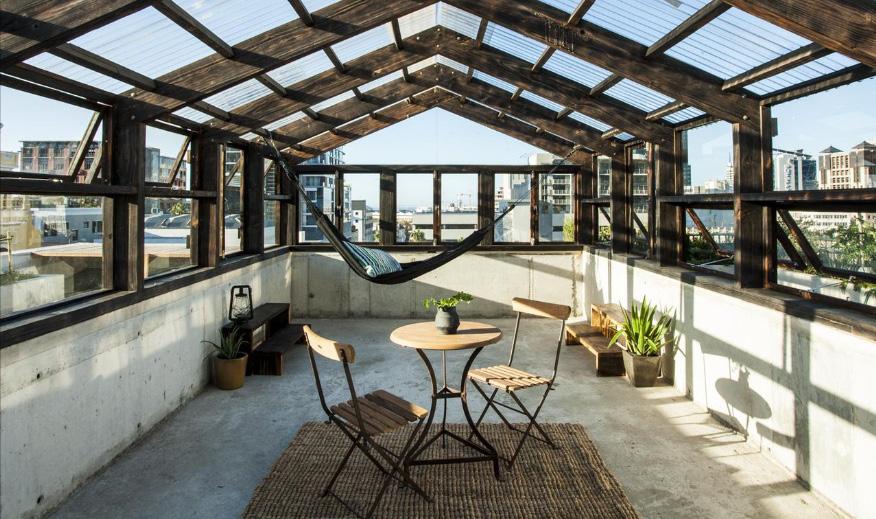

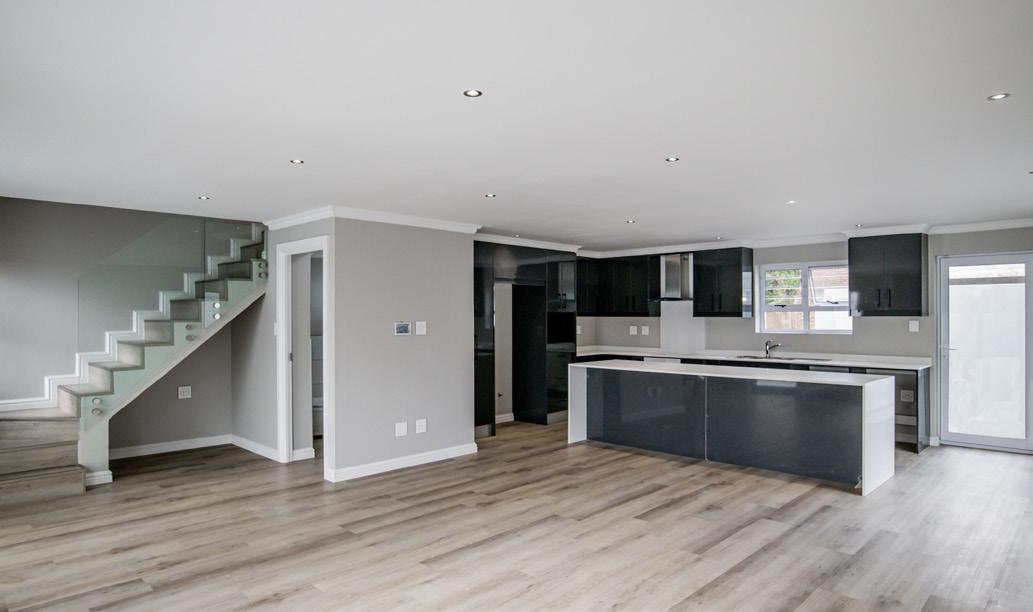
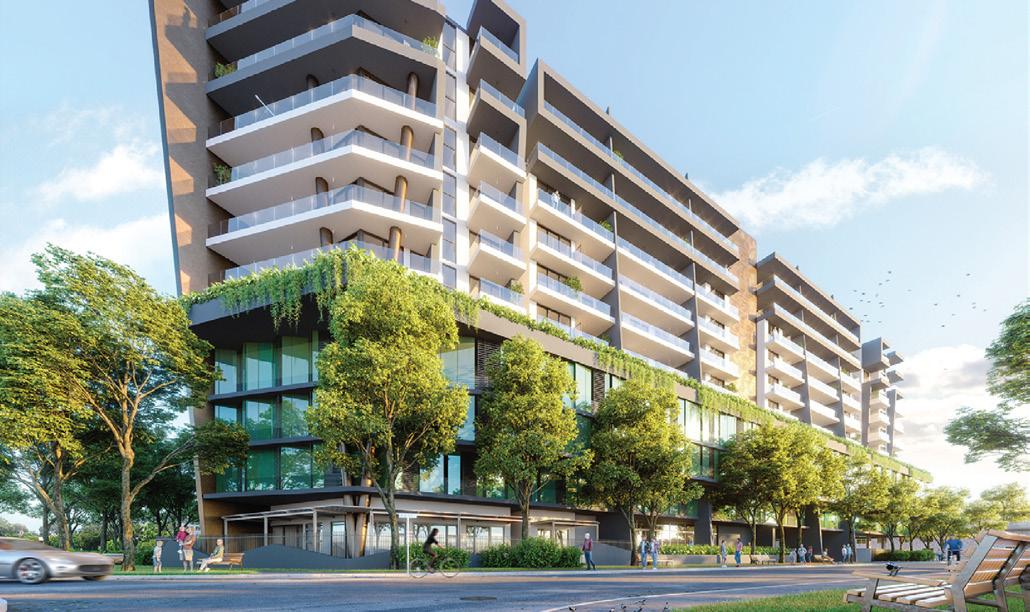
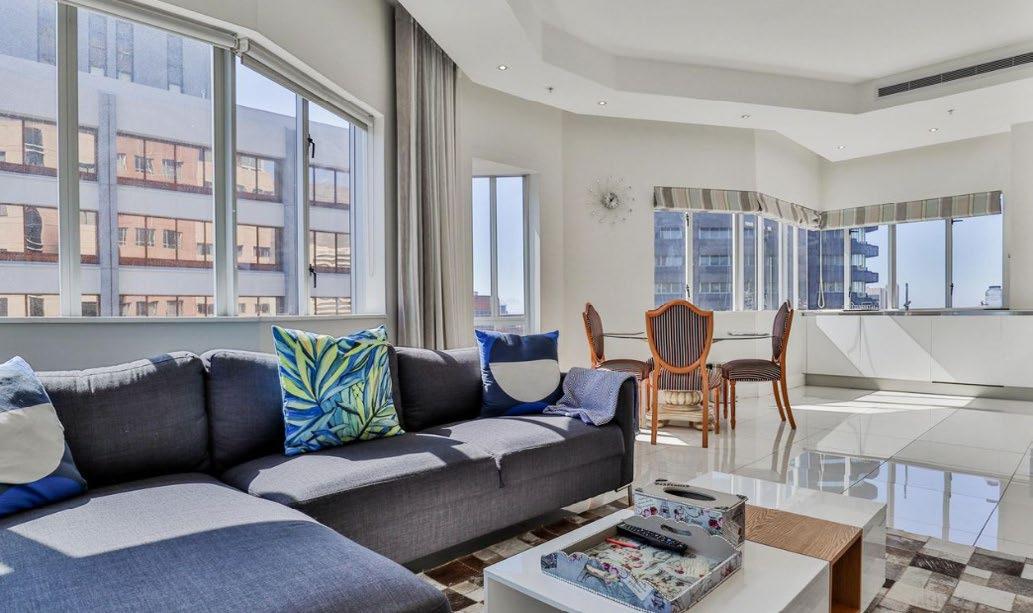
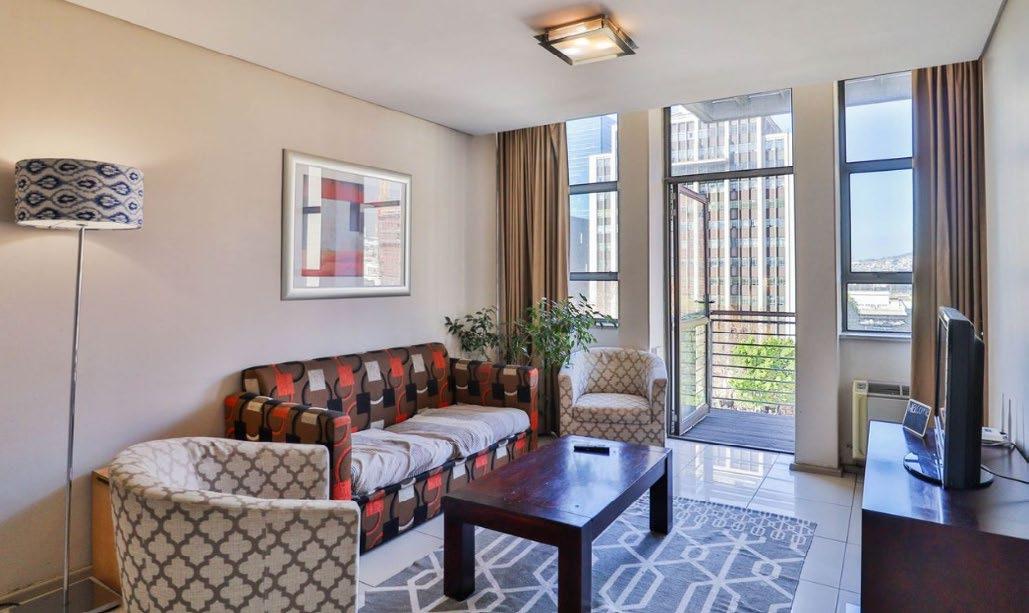
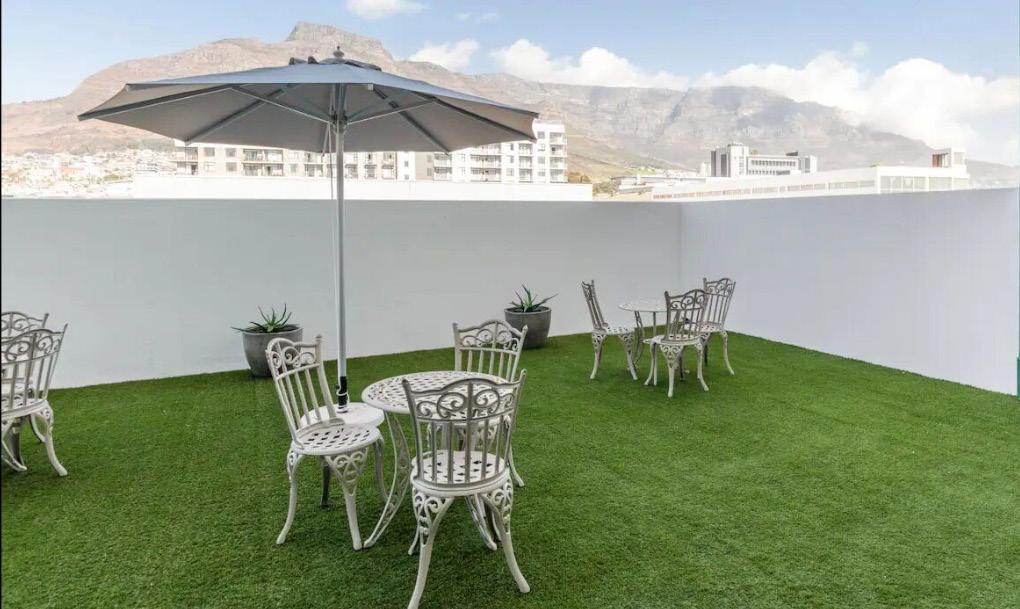
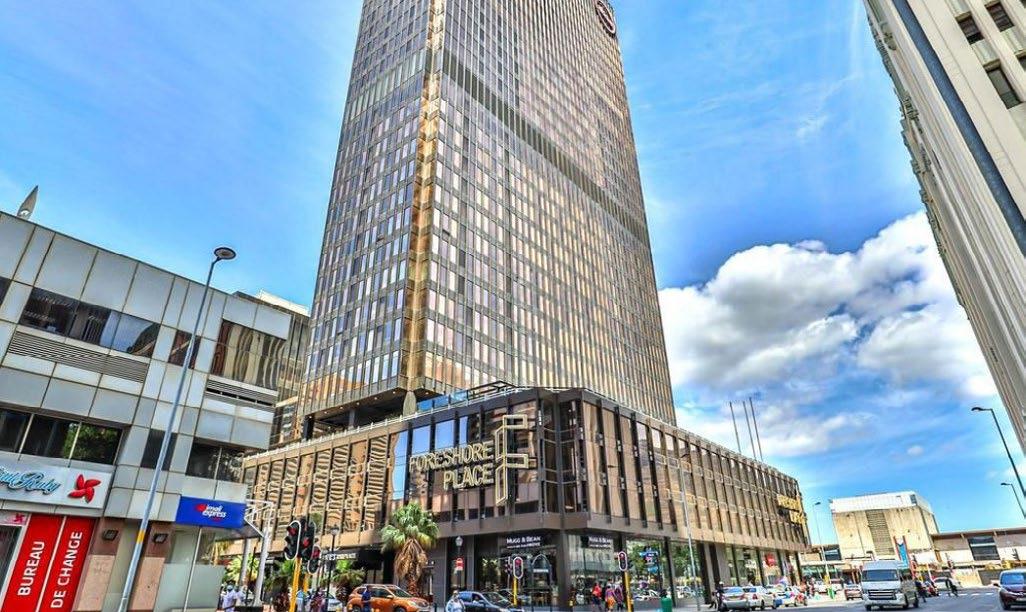
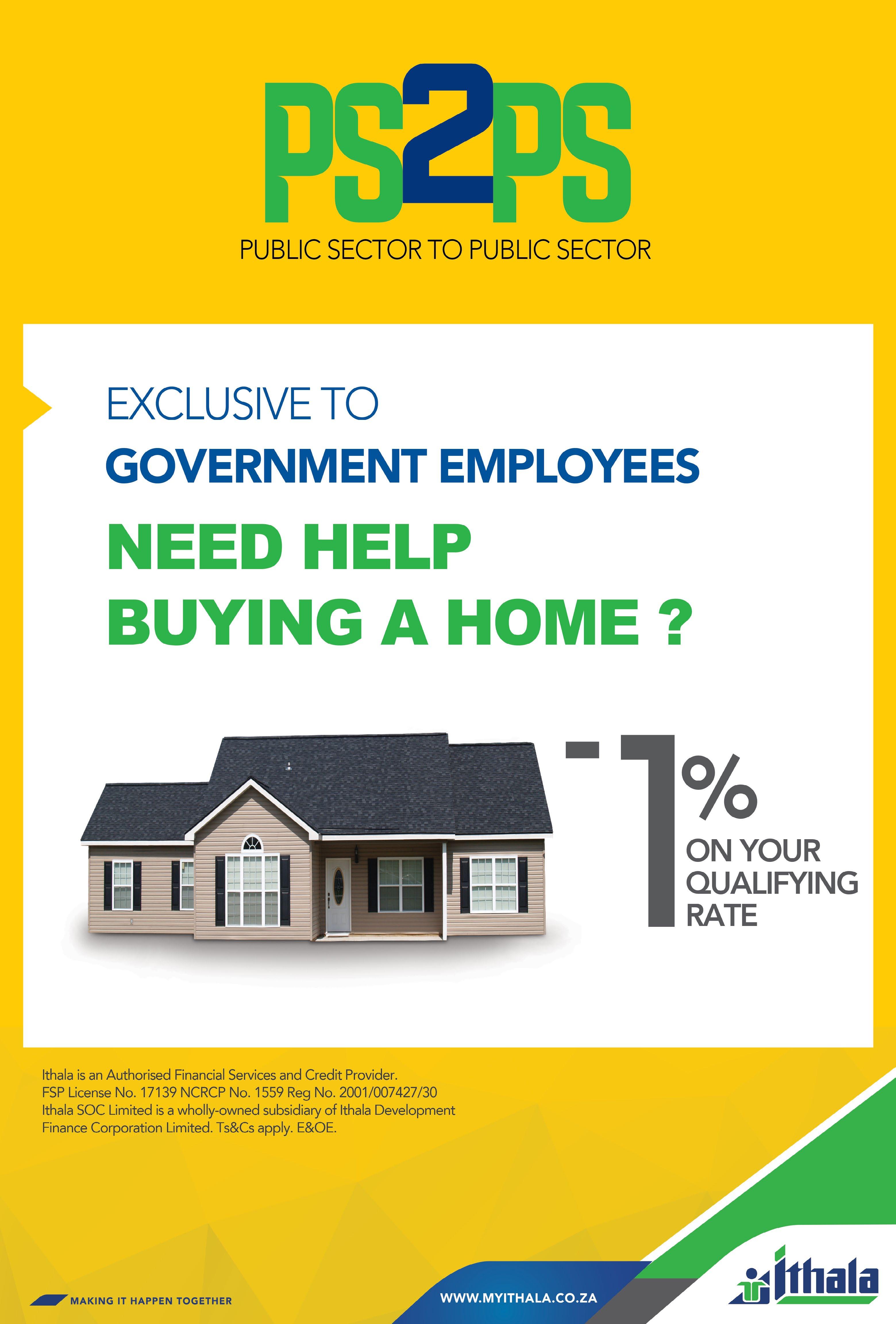
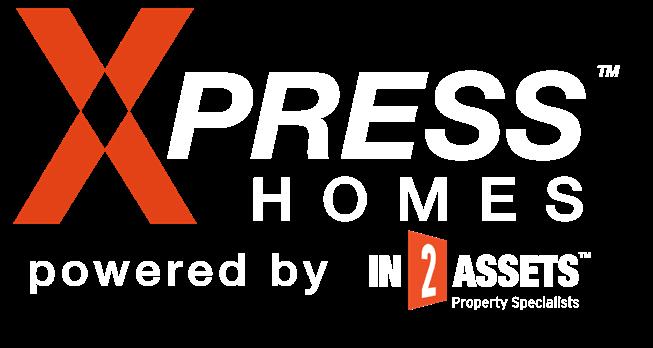
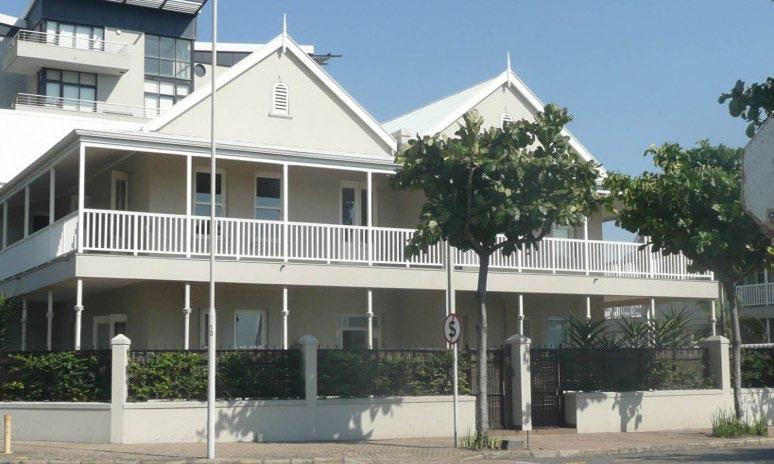
EXQUISITE 3 BEDROOM APARTMENT
Hazeldene Road, Sea View, Durban
Extent: ± 3 876 m² | 4 x 2 bedroom, 2 bath units | Large fully fitted kitchen | Main bedroom ensuite | Open plan lounge & dining area | Opportunity to develop a further 6 units | Approved building plans are available | Opportunity to purchase neighbouring property at 27 Hazeldene Road
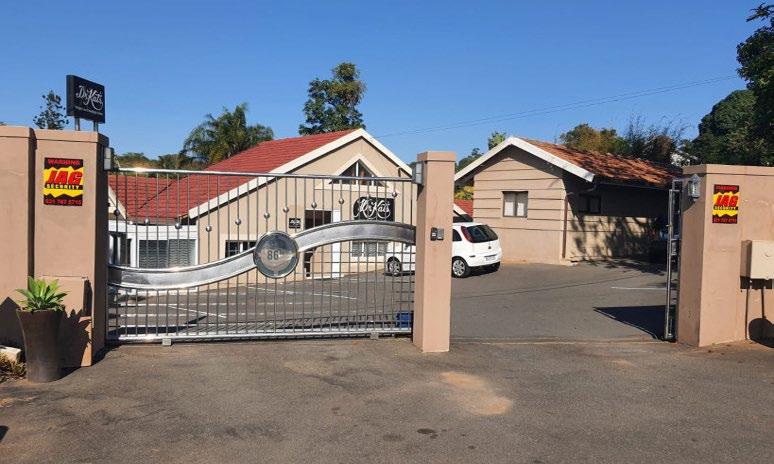
2 BEDROOM UNIT IN UMHLANGA ARCH Section 405 SS Umhlanga Arch, Umhlanga Rocks Extent: ± 91 m² | Open Plan Lounge | Dining Room & Kitchen | Two Bedrooms are both en-suite | 2 Secure parking bays TOWNHOUSE ON POINT WATERFRONT
4 SS Marine Point, Point Waterfront, Durban
± 221 m² | 3 Bedrooms |
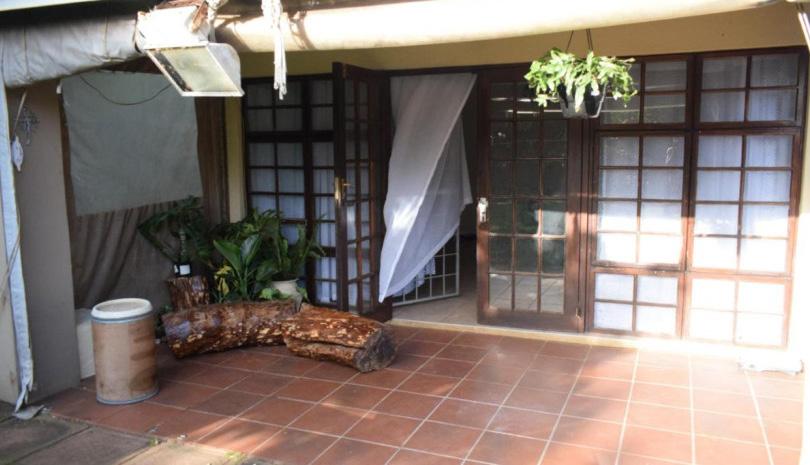
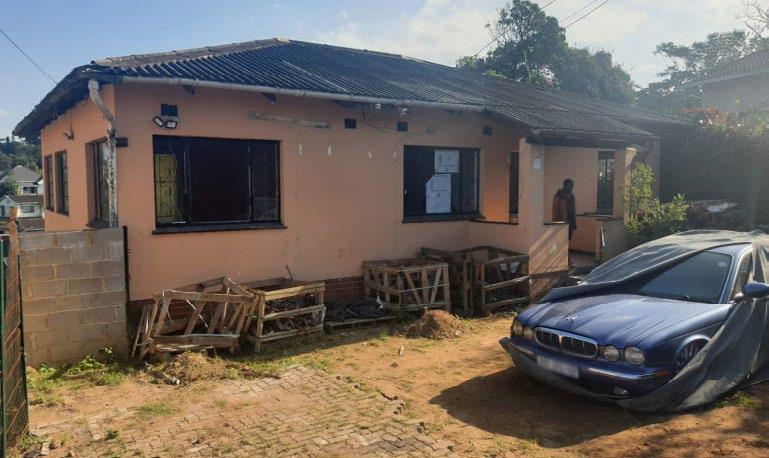
bathroom | Open plan lounge/dining room | Fully fitted kitchen
m² | 2 Bathrooms | Large Lounge area with braai area | Firepit area | Wendy House with 2 bedrooms, Lounge, Kitchen, Bathroom, Approximately R26000 per month as an air BnB
Section 34 SS Kings Creek, 15 Kingswood Crescent, River Club, Sandton, Gauteng
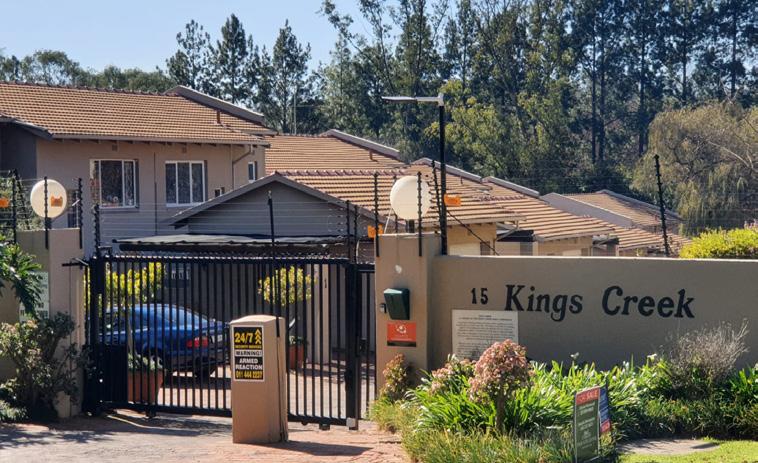
3 Bedrooms | 2 Bathrooms | Open plan lounge and dining area | Fitted kitchen Well maintained complex

± 1 570 m² | Situated in a cul-de-sac
APARTMENT IN UMGENI PARK
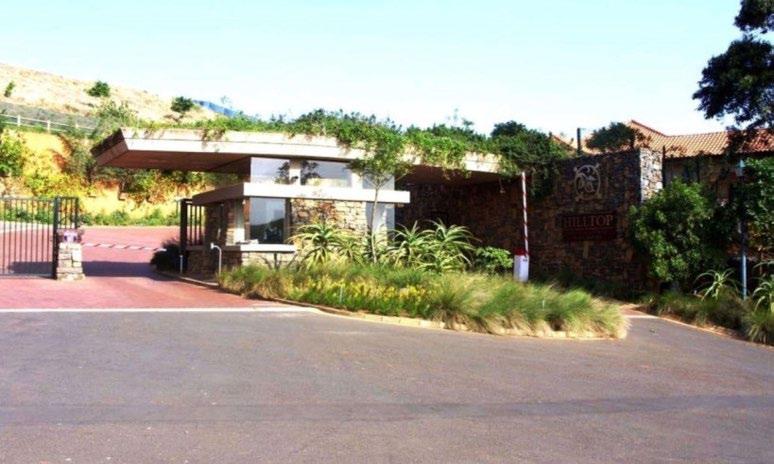
Section 10 SS Cabana Sierra, Browns Drift Road, Umgeni Park Extent: ± 145 m² | 3 Bedrooms | 1 Bathroom and 1 En-suite | Modern kitchen | Two single lock up garages and 1 under over parking bay
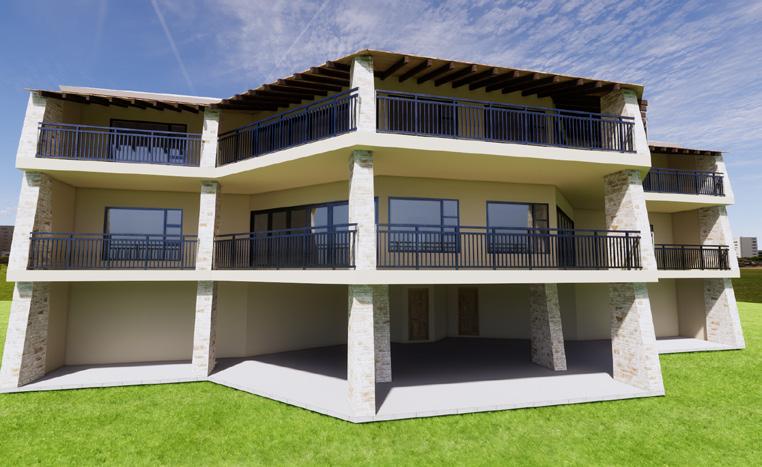
5 BEDROOM HOUSE IN WESTVILLE

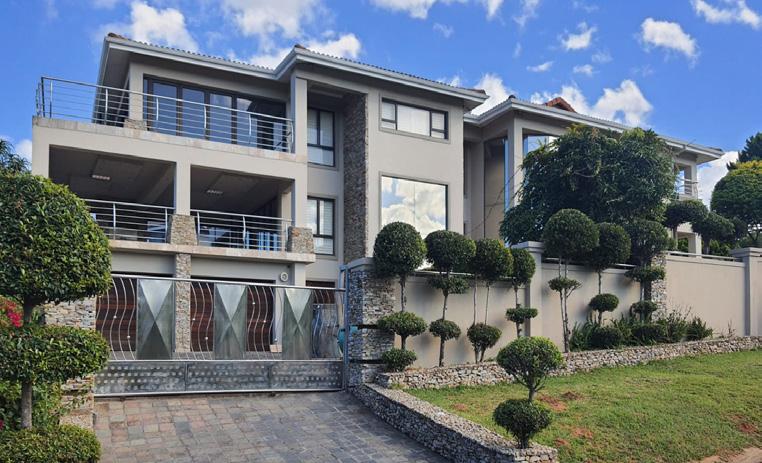
86A Jan Hofmeyer Road, Westville
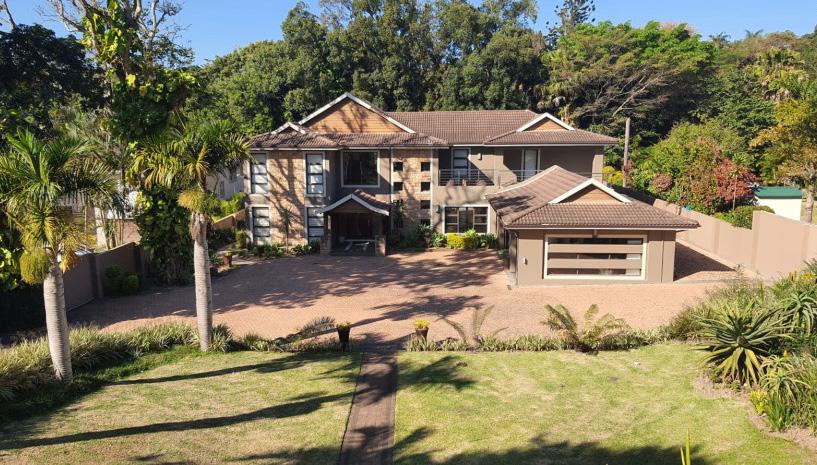
4 Bedrooms | Main bedroom with walk-in closet | Spacious lounge | Dining room & kitchen | Study TV room | Guest bedroom with ensuite | Pool and braai area | Close to the Habibia Soofie Aastana Mosque
3 BEDROOM HOME IN COMPLEX Section 16 SS Glen Garry, 8 Churchill Avenue, La Lucia
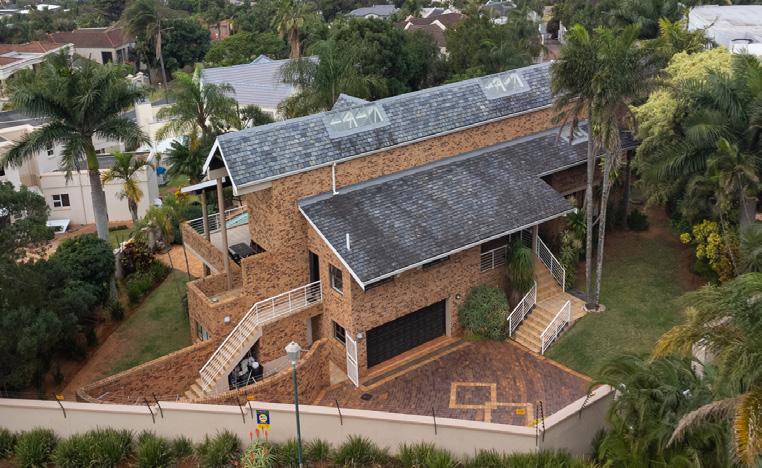
Extent: ± 181 m² | 3 Bedrooms Main bedroom ensuite | 1 Guest bathroom | Open plan kitchen with pantry & scullery | Double garage | Pet friendly
UNIQUE AND LUCRATIVE DEVELOPMENT
Section 1 SS Al Shuaib Manzil, 1498 Beach View Grove, Ramsgate, South Coast, KZN

Extent: ± 4 700 m² | 3 Phase power supply | Project comprises of 8 Penthouse floors with 4 bedrooms with ensuites, 2 Fitted kitchens, open plan lounge and dining area | A proposed Jamaat Khana | Can be divided into 2 separate apartments making up 16 units in total
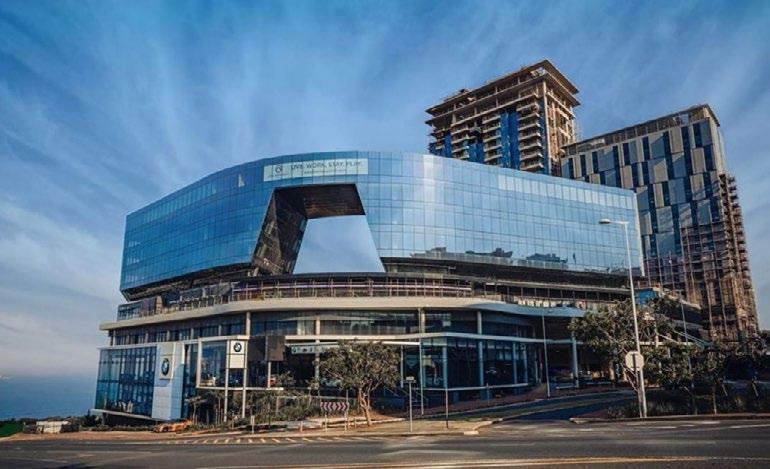
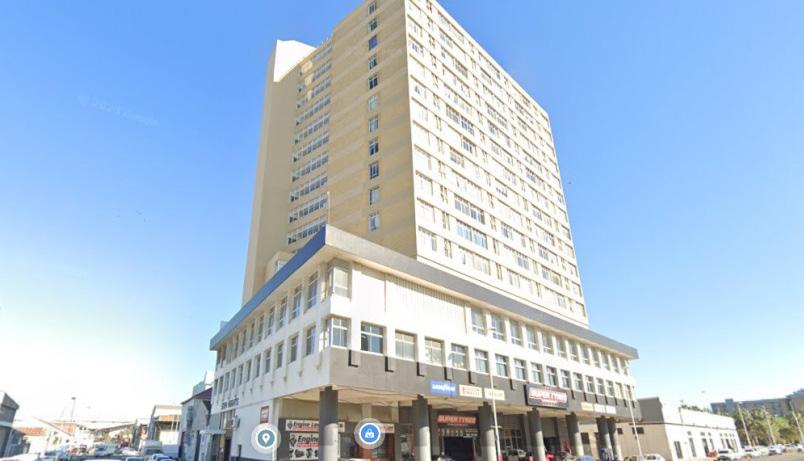
2 BEDROOM APARTMENT IN THE PEARLS Section 216 SS The Pearls of Umhlanga, 6 Lagoon Drive, Umhlanga
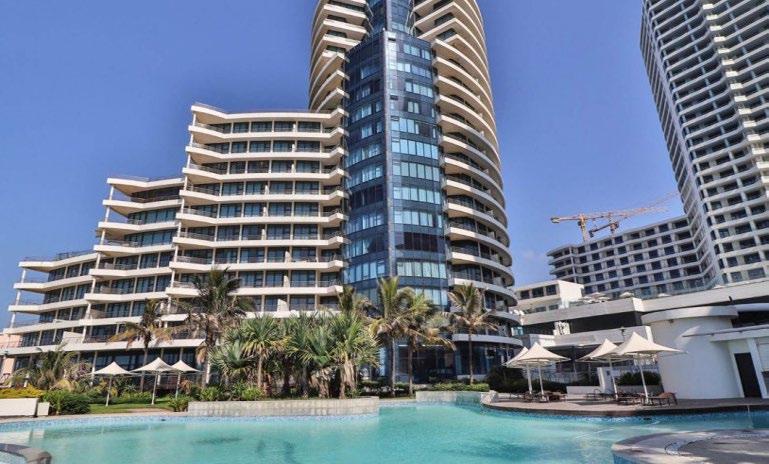
2 Bedrooms | 2 Bathrooms | Open plan living area | Balcony with sea views | Direct access to the Pearls Mall | Direct access to the Umhlanga Promenade | Walking distance to Umhlanga Village
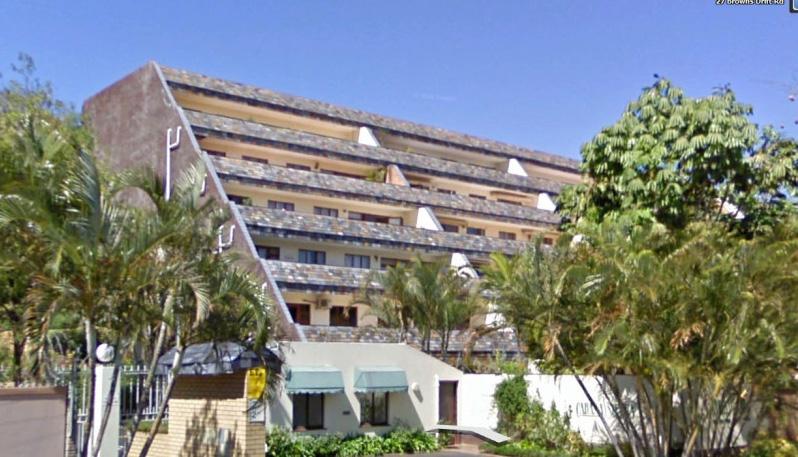




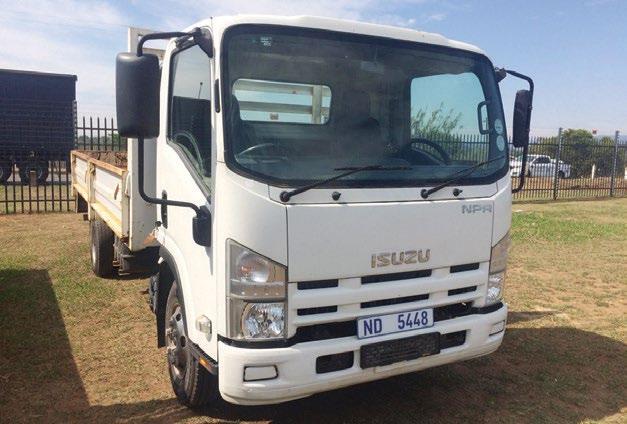
DOGON GROUP PROPERTIES
Atlantic Seaboard Office 021 433 2580
thekings@dogongroup.com
www.dogongroup.com
RHONDA RAAD PROPERTIES
Cape Town Office 082 448 7795
Email: rrpsales@mweb.co.za
www.rhondaraadproperties.co.za

ASKA PROPERTY GROUP
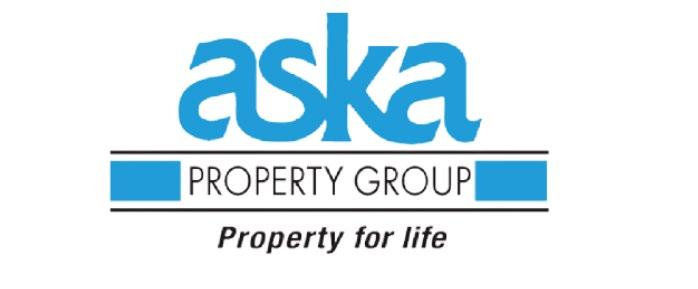
Sandown, Milnerton Estates
Office 071 604 8493
Email: corlia@aska.co.za
www.askaproperty.co.za
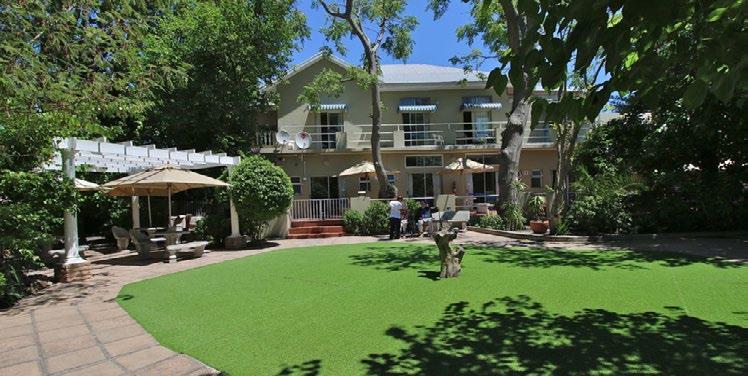
DOGON GROUP RENTALS
Sea Point Office 021 433 2580
enquiries@dogongroup.com
www.dogongroup.com
DE PLATTEKLOOF
Cape Town 060 960 0100
Email: live@deplattekloof.co.za
www.deplattekloof.co.za
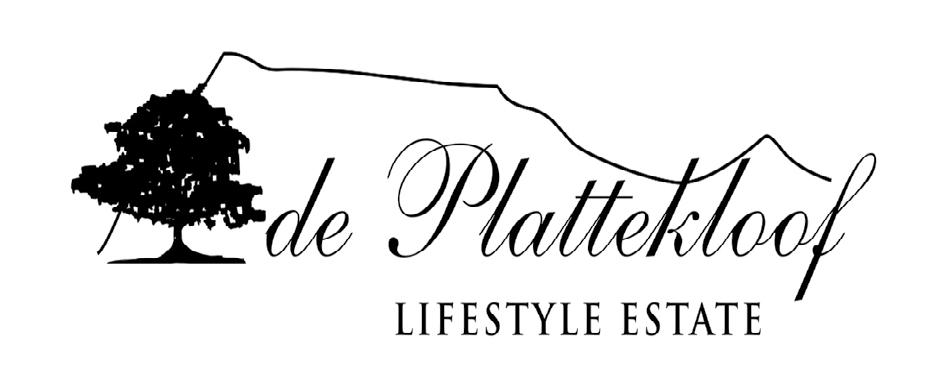
IRENE PORTER PROPERTIES

Simon’s Town Office 021 786 3947
Debbie 073 140 2543
www.ireneporterproperties.co.za
DOGON GROUP PROPERTIES
Southern Suburbs, Claremont Office 021 671 0258

southernsuburbs@dogongroup.com
www.dogongroup.com
PETER MASKELL AUCTIONEERS

KZN
Office: 033 397 1190
Email: info@maskell.co.za
www.bidlive.maskell.co.za
MURAMBI HOUSE
Wynberg Office
murambihouse@telkomsa.net
www.murambi.co.za
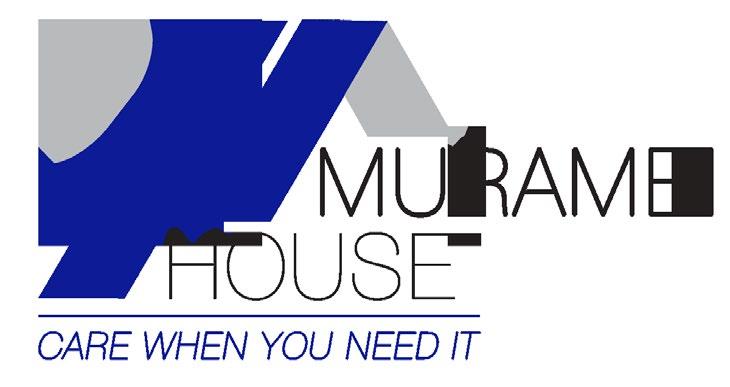
DOGON GROUP PROPERTIES




Western Seaboard
Office: 021 556 5600 or 021 433 2580
enquiries@dogongroup.com
www.dogongroup.com
VAN’S AUCTIONEERS
Gauteng Office 086 111 8267
www.vansauctions.co.za
www.iolproperty.co.za








